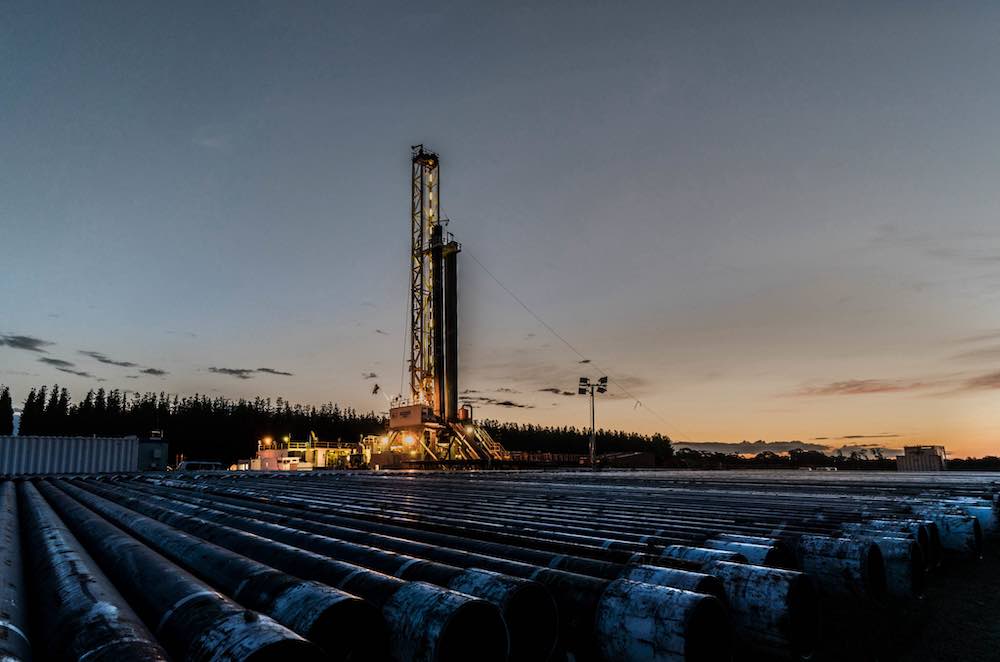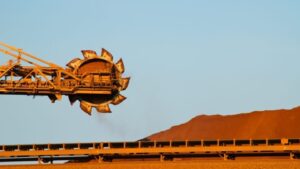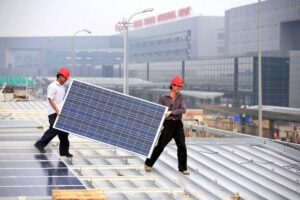Oil and gas major Beach Energy says it has completed a pre-feasibility study on a carbon capture and storage “opportunity” at its majority-owned Victorian Otway Basin gas field and is moving head into the next phase of the project.
The news on the CCS project was dished up in a wide-ranging market announcement looking to showcase gas and oil company’s green credentials as it seeks to balance soaring fossil fuel profits and demand with a commitment to “Paris aligned” climate targets.
In the statement, Beach says it is assessing renewable and emerging energy options near its existing operations in Australia and New Zealand that include onshore and offshore wind, as well as production of hydrogen and storage of ammonia.
The company has an “aspiration” to achieve net zero by 2050 and a target to reduce net equity emissions intensity across its operated and non-operated portfolio of 35% by 2030 when measured against a 2018 baseline.
“It simply won’t work”
Meanwhile, Beach’s focus is on carbon capture and storage to cut its ballooning emissions. A strategy that at best might be called optimistic, and at worst, greenwash.
A recent report from the Institute of Energy Economics and Financial Analysis found that seven out of 13 flagship large-scale carbon capture and storage (CCS)/carbon capture utilisation and storage (CCUS) projects underway globally had underperformed, while two had failed, and one had been mothballed.
“CCS technology has been going for 50 years and many projects have failed and continued to fail, with only a handful working,” said the report’s author, Bruce Robertson.
“Many international bodies and national governments are relying on carbon capture in the fossil fuel sector to get to Net Zero, and it simply won’t work.”
Other critics, such as the Climate Council, regard CCS as little more than license for fossil fuel producers to ramp up emissions.
Beach is persevering, however, and has earmarked $84 million to its Moomba CCS project in the Cooper Basin with joint venture partner Santos.
That facility is under construction and targeting first CO2 injection in 2024 and aims to be capable of storing of up to 1.7 million tonnes of CO2 annually, ranking it as one of the world’s largest scale CCS projects.
Up and running, it will be responsible for abating roughly 7 percent of South Australia’s greenhouse gas emission, Beach claims.
Pumping out gas while limiting climate change
CEO Morné Engelbrecht said Beach would “continue to provide energy security to Australia and New Zealand, while playing a role in limiting the impacts of climate change.”
A major energy supplier, Engelbrecht said Beach needed to explore all “sensible opportunities” to cut emissions, highlighting the continuing role of gas in Beach’s portfolio.
“We know that natural gas will enable a steady transition to a clean energy future as it displaces coal in our energy mix, supplying a reliable source of power with lower emissions.
“The 2022 financial year brought into sharp focus the important role natural gas currently plays in providing energy security, and will continue to do so for decades to come,” Engelbrecht said in unveiling a $504 million profit in August.










